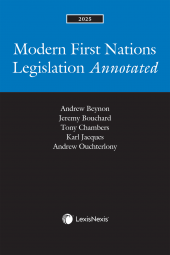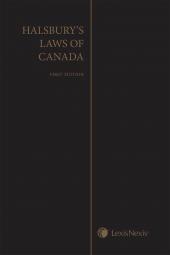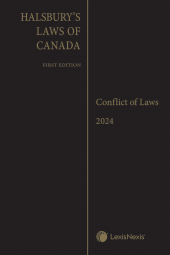Criminal Jury Charge Practice
One Year Subscription Only Terms
Subscribers receive the product(s) listed on the Order Form and any Updates made available during the annual subscription period. Shipping and handling fees are not included in the annual price.
Subscribers are advised of the number of Updates that were made to the particular publication the prior year. The number of Updates may vary due to developments in the law and other publishing issues, but subscribers may use this as a rough estimate of future shipments. Subscribers may call Customer Support at 800-833-9844 for additional information.
Subscribers may cancel this subscription by: calling Customer Support at 800-833-9844; emailing customer.support@lexisnexis.com; or returning the invoice marked 'CANCEL'.
If subscribers cancel within 30 days after the product is ordered or received and return the product at their expense, then they will receive a full credit of the price for the annual subscription.
If subscribers cancel between 31 and 60 days after the invoice date and return the product at their expense, then they will receive a 5/6th credit of the price for the annual subscription. No credit will be given for cancellations more than 60 days after the invoice date. To receive any credit, subscriber must return all product(s) shipped during the year at their expense within the applicable cancellation period listed above.
Product description
Towards the end of trials that are often lengthy and exhausting, defence counsel and Crown prosecutors are required to provide input to the trial judge on the content of the jury charge and typically have to do so within a short time frame. This concise new publication from experienced criminal trial and appeal lawyer, Faisal Mirza, is destined to become the go-to resource to help practitioners complete this essential task as effectively as possible, offering expert insight and commentary, supported by the relevant criminal case law.
What's inside
Criminal Jury Charge Practice aims to assist criminal law practitioners, as well as judges, in validating objections and requests to remedy errors, omissions or generic instructions in the jury charge. In particular, the goal of this book is to assist counsel with identifying important issues and substantiating their requests for more tailored jury instructions, thereby enhancing the prospect of a fairer trial or stronger record for an appeal.
Each chapter of the book covers a different topic of law that frequently forms part of the jury charge. For example, the chapters succinctly review and break down advanced issues that include:
- Expert Evidence
- Credibility Cautions
- Propensity Reasoning and Bad Character
- Post Offence Conduct
- Party Liability
- Reasonable Doubt
In addition, every chapter includes easily accessible practical tips to assist counsel to formulate their position and request instructions to be included in the jury charge. There are also sections on closing submissions and juror questions. The commentary and practical tips will improve counsel's advocacy while reducing the likelihood of errors or the failure to object under the pressure of a jury trial.
A practical guide
Because it features extensive expert commentary on specific jury charge issues, Criminal Jury Charge Practice is a useful reference for defence counsel, Crown prosecutors and judges alike. Guided by this book's content, they will be able to effectively and accurately produce focused jury charges in the brief window of time permitted. The analysis included in the book will also assist counsel in preparing motion records and oral submissions for trials and appeals.
Table of contents
I. Introduction
Strategy
II. Failure to Object
III. Mid-Trial Instructions
Defences
IV. Identification
V. Alternate Suspect and Inadequate
Investigation
VI. Alibi
VII. Provocation
Credibility
VIII. Credibility Caution
IX. Fabrication and Prior Consistent
Statements
Evidence
X. Propensity Reasoning and Bad Character
XI. Severance and the Co-Accused's
Statement
XII. KGB and Principled Exception to Hearsay
XIII. Expert Evidence
XIV. Post Offence Conduct
Parties
XV. Party Liability
XVI. Possession
Standard of Proof
XVII. Recklessness and Wilful Blindness
XVIII. Reasonable Doubt
Before the Verdict
XIX. Counsel's Closing Arguments
XX. Juror Questions
 Lexis Nexis
Lexis Nexis 


